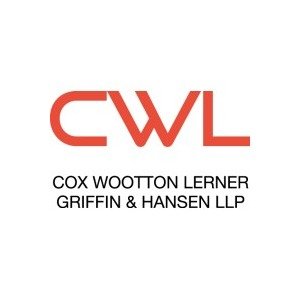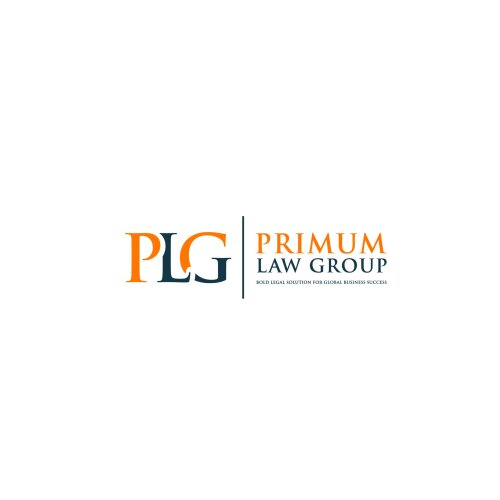Best Merger & Acquisition Lawyers in San Francisco
Share your needs with us, get contacted by law firms.
Free. Takes 2 min.
List of the best lawyers in San Francisco, United States
About Merger & Acquisition Law in San Francisco, United States
San Francisco, a hub of technology and innovation, is a significant center for business activities, including mergers and acquisitions (M&A). The city hosts a myriad of companies, from startups to large corporations, making it a vibrant ground for M&A activities. Merger and acquisition law in San Francisco involves the legal processes associated with companies combining (mergers) or one company purchasing another (acquisitions). This sector of law is designed to guide, regulate, and structure these transactions to ensure that they meet legal and business standards.
Why You May Need a Lawyer
M&A transactions can be complex and involve significant legal challenges. Here are common scenarios where legal assistance might be necessary:
- Negotiating terms of the merger or acquisition to ensure favorable outcomes.
- Conducting due diligence to uncover potential liabilities or issues with the deal.
- Ensuring compliance with federal and state regulations and antitrust laws.
- Drafting and reviewing contracts and other critical documents.
- Navigating disputes or unforeseen issues during the transaction process.
Local Laws Overview
In San Francisco, M&A transactions are subject to both federal and California state laws. Key legal considerations include:
- Antitrust Laws: These laws prevent market monopolization and ensure fair competition. Both federal and state laws, including those enforced by the Department of Justice and the Federal Trade Commission, apply.
- Corporate Law: California's Corporations Code governs the formation and operations of corporations, influencing mergers and acquisitions.
- Securities Regulation: If public companies are involved, regulations from the Securities and Exchange Commission (SEC) apply, ensuring transparency and fairness.
- Employee and Labor Laws: Considerations regarding employee rights and obligations often arise during M&A activities, especially in San Francisco's tech-heavy job market.
Frequently Asked Questions
What is the role of due diligence in M&A?
Due diligence involves thoroughly investigating the target company’s financial, legal, and operational aspects. This process helps uncover potential risks or liabilities, ensuring informed decision-making.
How long does a typical M&A transaction take?
M&A transactions can vary significantly in duration, typically ranging from several months to over a year, depending on the complexity and the parties involved.
Can an M&A transaction be stopped?
Yes, transactions can be halted if there are legal issues, unfavorable due diligence results, or if regulatory bodies raise antitrust concerns.
What are the tax implications of M&A transactions?
M&A transactions have various tax consequences. It’s crucial to work with tax advisors and legal counsel to optimize tax structures for the deal.
How do cultural differences impact M&A?
Cultural differences can significantly influence M&A success, affecting integration, communication, and employee morale. Managing these differences is critical for a seamless transition.
What is a hostile takeover?
A hostile takeover occurs when a company attempts to acquire another against the wishes of its management. This typically involves significant legal and strategic maneuvers.
How does San Francisco's tech industry influence M&A?
The tech industry significantly impacts M&A in San Francisco, driving innovation-driven deals and often involving large technology companies or startups.
What role does antitrust law play in M&A?
Antitrust laws help maintain market competition. In M&A, these laws ensure that the transaction does not create monopolistic entities or reduce competition significantly.
Who regulates M&A activities in the U.S.?
The Securities and Exchange Commission, Federal Trade Commission, and Department of Justice are primary regulators. State-specific regulatory bodies also play roles, particularly through state-specific corporate laws.
What is the difference between a merger and an acquisition?
In a merger, two companies combine to form a new entity, while in an acquisition, one company purchases and absorbs another. Both processes involve complex legal treatments.
Additional Resources
For further information, consider reaching out to these resources and organizations:
- San Francisco Chamber of Commerce: Offers support and information for local businesses.
- California Secretary of State: Provides access to corporate filings and business regulation details.
- Securities and Exchange Commission (SEC): Offers resources and guidance on securities regulations.
- American Bar Association: Provides educational materials and resources on corporate law and M&A.
Next Steps
If you require legal assistance with an M&A transaction in San Francisco, consider the following steps:
- Identify and consult with experienced M&A attorneys who understand local and federal laws.
- Prepare detailed information about the transaction, including goals, financial data, and key objectives.
- Engage in detailed discussions about potential challenges and ensure that your legal team is aligned with your strategic objectives.
M&A transactions can be transformative but also carry significant legal intricacies. Adequate legal representation and resources will help navigate these complexities successfully.
Lawzana helps you find the best lawyers and law firms in San Francisco through a curated and pre-screened list of qualified legal professionals. Our platform offers rankings and detailed profiles of attorneys and law firms, allowing you to compare based on practice areas, including Merger & Acquisition, experience, and client feedback.
Each profile includes a description of the firm's areas of practice, client reviews, team members and partners, year of establishment, spoken languages, office locations, contact information, social media presence, and any published articles or resources. Most firms on our platform speak English and are experienced in both local and international legal matters.
Get a quote from top-rated law firms in San Francisco, United States — quickly, securely, and without unnecessary hassle.
Disclaimer:
The information provided on this page is for general informational purposes only and does not constitute legal advice. While we strive to ensure the accuracy and relevance of the content, legal information may change over time, and interpretations of the law can vary. You should always consult with a qualified legal professional for advice specific to your situation.
We disclaim all liability for actions taken or not taken based on the content of this page. If you believe any information is incorrect or outdated, please contact us, and we will review and update it where appropriate.
















